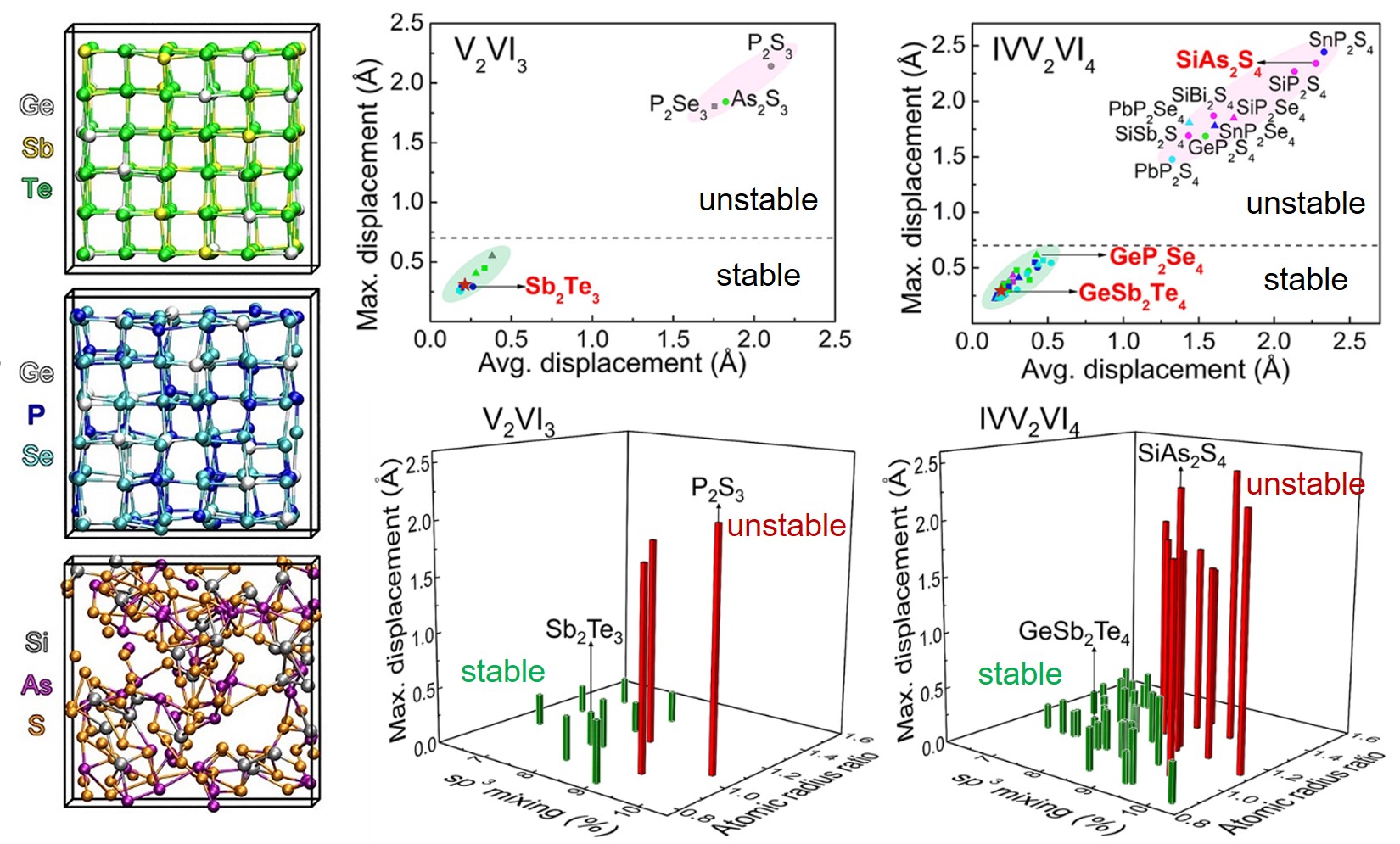Tailoring the degree of disorder in chalcogenide phase-change materials (PCMs) plays an essential role in nonvolatile memory devices and neuro-inspired computing. Upon rapid crystallization from the amorphous phase, the flagship Ge–Sb–Te PCMs form metastable rocksalt-like structures with an unconventionally high concentration of vacancies, which results in disordered crystals exhibiting Anderson-insulating transport behavior. Here, ab initio simulations and transport experiments are combined to extend these concepts to the parent compound of Ge–Sb–Te alloys, viz., binary Sb2Te3, in the metastable rocksalt-type modification. Then a systematic computational screening over a wide range of homologous, binary and ternary chalcogenides, elucidating the critical factors that affect the stability of the rocksalt structure is carried out. The findings vastly expand the family of disorder-controlled main-group chalcogenides toward many more compositions with a tunable bandgap size for demanding phase-change applications, as well as a varying strength of spin–orbit interaction for the exploration of potential topological Anderson insulators.

Structural stability of binary and ternary chalcogenides in the rocksalt phase
Link to the article: https://onlinelibrary.wiley.com/doi/full/10.1002/adma.202006221
This paper is a joint work between Prof. Wei Zhang’s group at Xi’an Jiaotong University and Prof. Riccardo Mazzarello’s group and Prof. Matthias Wuttig’s group at RWTH Aachen University. Prof. Zhang’s group is a part of Center for Alloy Innovation and Design at XJTU, focusing on the investigations of phase-change materials for advanced memory and neuromorphic computing applications. Prof. Zhang hosts international students for degree programs and short-term visits regularly. He could be reached via wzhang0@mail.xjtu.edu.cn .
More information can be found at http://gr.xjtu.edu.cn/en/web/wzhang0/home


